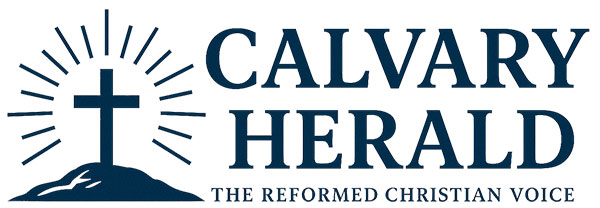In a move welcomed by many people of faith, the U.S. Office of Personnel Management (OPM) has issued new guidance to federal agencies, urging them to expand accommodations for religious liberty in the workplace. The directive, part of the Trump administration’s broader commitment to safeguarding religious freedom, aims to ensure that federal employees do not have to choose between their convictions and their careers.
The guidance, sent Wednesday to the heads of all federal agencies, outlines measures ranging from flexible work schedules to telework options, enabling employees to observe religious practices without fear of discrimination or undue hardship.
“Religious liberty is foundational,” OPM Director Scott Kupor stated. “No federal employee should be forced to choose between their faith and their federal service. This guidance ensures agencies meet their legal obligations and treat these requests with the seriousness they deserve.”
The Framework for Religious Liberty in the Workplace
At its heart, the OPM’s memo is rooted in Title VII of the Civil Rights Act of 1964, which prohibits employment discrimination on the basis of religion and requires employers to reasonably accommodate religious beliefs and practices unless doing so would impose an undue hardship.
The 2022 U.S. Supreme Court decision in Groff v. DeJoy, which sided with a Christian postal worker seeking to honor the Lord’s Day by refusing to work Sundays, further solidified this principle. That landmark case strengthened protections for religious employees across America, reinforcing the idea that religious accommodation must be more than a token gesture—it must be meaningful and robust.
Now, the federal government is seeking to model that standard within its own workforce.
What the Guidance Includes
The new OPM directive outlines several accommodations designed to support religious observance, including:
- Telework and Remote Work: Employees may work remotely on days of religious significance or in preparation for such days, reducing travel-related conflicts with their faith commitments.
- Flexible Schedules: “Maxiflex” schedules allow employees to adjust arrival and departure times or attend religious observances during flexible hours without needing to take leave.
- Compensatory Time Off: Employees may earn time off by working extra hours before or after religious observances.
- Fasting and Prayer Breaks: Agencies are encouraged to provide private spaces and flexibility for practices such as fasting-related rest or prayer times during work hours.
- Leave Options: Additional accommodations include annual leave, advanced annual leave, earned compensatory time, and leave without pay for religious observances.
The guidance emphasizes that as long as such adjustments do not interfere with an agency’s mission, they should be granted whenever possible.
A Cultural Shift—or a Cultural Battle?
The directive comes at a time when religious liberty remains a fiercely contested issue in America’s public square. Supporters see the move as a necessary correction in a culture increasingly hostile to expressions of faith. Critics, however, view it as a potential disruption to workplace efficiency or as a preferential treatment of religious employees.
The memo’s release coincides with the confirmation of OPM Director Scott Kupor, President Trump’s nominee, in a narrow 49-46 Senate vote earlier this month. Kupor’s appointment—like many of Trump’s cabinet picks—drew sharp partisan divides, with Republicans largely supporting him and Democrats opposing.
A Reformed Perspective: Why This Matters
For believers, religious liberty is not a political luxury; it is a biblical necessity. As Reformed Baptists, we confess that Christ alone is Lord of the conscience (London Baptist Confession 1689, Chapter 21). When civil authorities protect this liberty, they are fulfilling part of their God-ordained role “for the punishment of evildoers, and for the praise of them that do well” (1 Peter 2:14).
Yet we must remember: the preservation of external liberties, while important, does not guarantee a faithful witness. The greater question is how we, as Christians, will use these freedoms. Will we redeem flexible schedules for prayer and devotion? Will we boldly honor the Lord’s Day when accommodations are offered? Will our work ethic and integrity reflect the gospel we profess?
A Call to Prayer and Discernment
While the OPM guidance represents a positive development for religious employees, it also serves as a reminder that true freedom cannot be legislated—it comes from Christ alone. As the Apostle Paul declared:
“Stand fast therefore in the liberty wherewith Christ hath made us free, and be not entangled again with the yoke of bondage.” (Galatians 5:1)
We must pray for federal workers who now have greater opportunities to honor their faith, asking the Lord to give them courage and wisdom. At the same time, we should pray for our governing authorities, that they would uphold justice and righteousness in accordance with God’s law.
Looking Ahead
The practical outworking of the OPM memo will vary by agency. While the guidance sets a clear expectation, it acknowledges that implementation details will depend on the unique mission and needs of each department.
Still, this move sets a precedent—not just for the federal government but for private employers across the nation—to take religious liberty seriously.
As the culture grows increasingly secular, Christians must steward such freedoms well. They are not an excuse for complacency but an opportunity for faithfulness. In our workplaces, homes, and churches, let us live in such a way that our light shines before men, and our God is glorified.




0 Comments